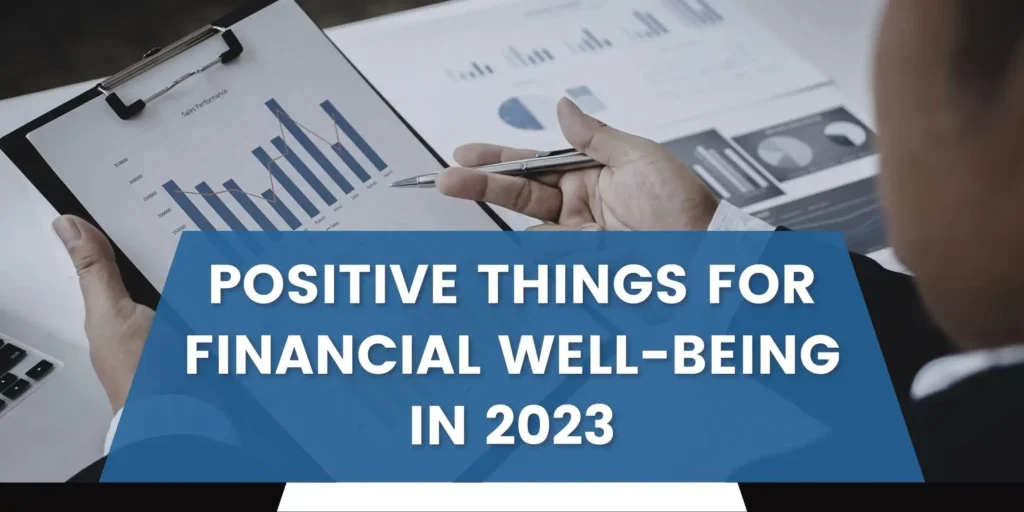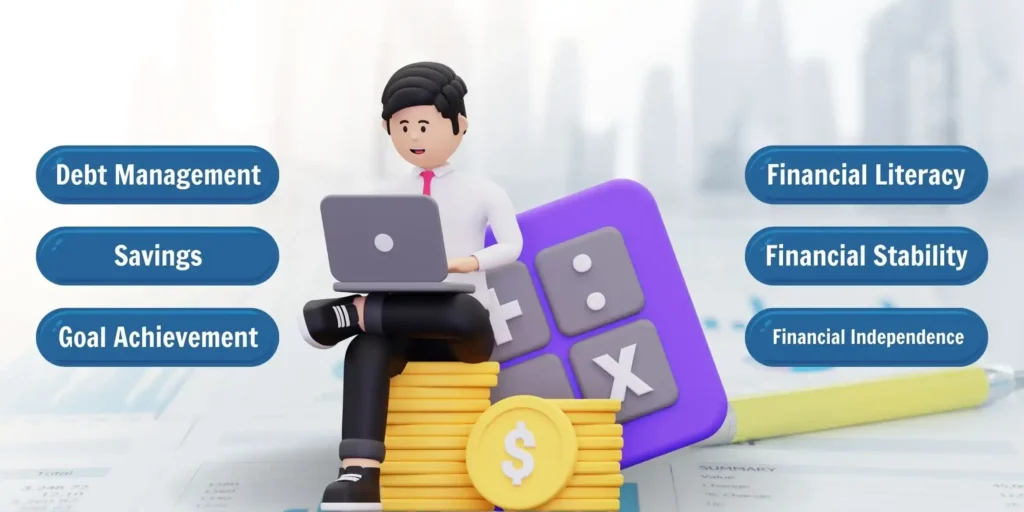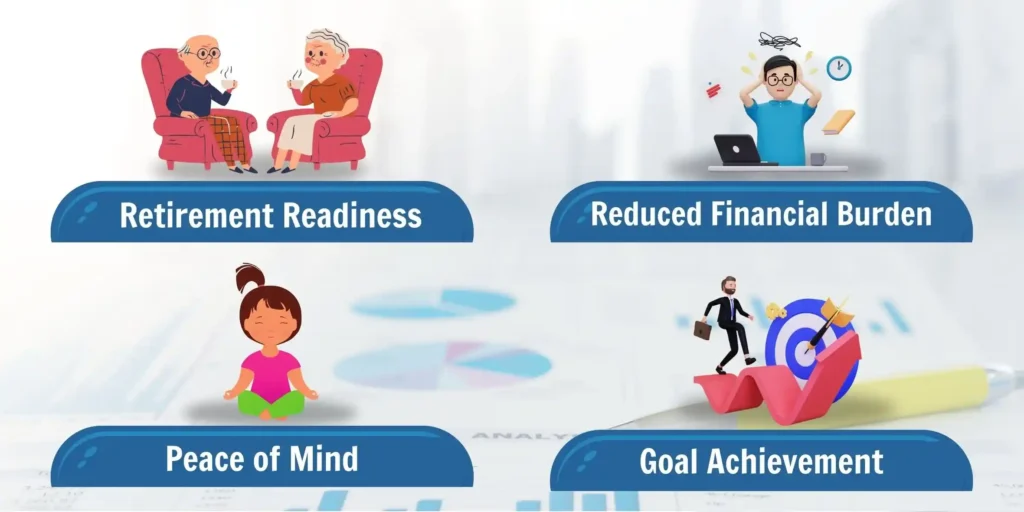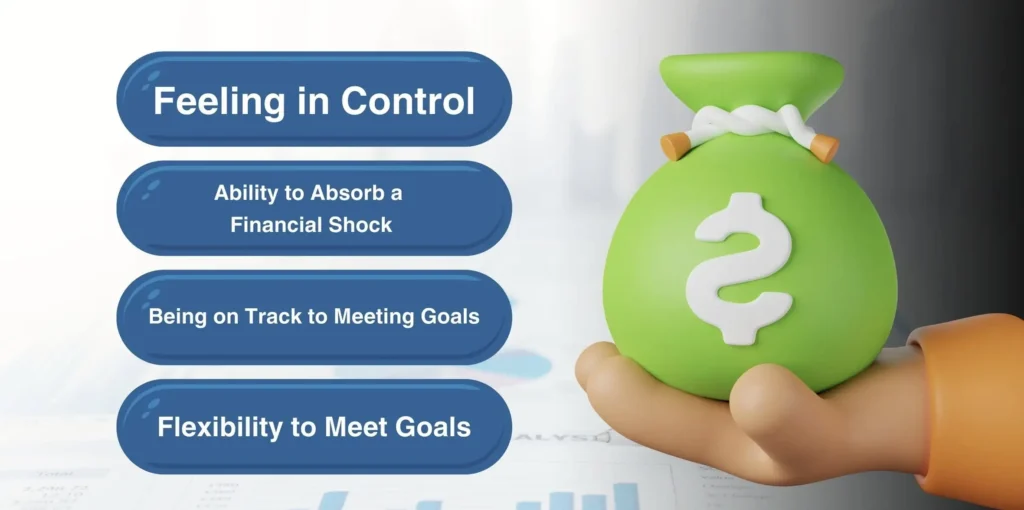
Should I talk to a Financial Advisor When Buying a House?
In This Article Should I talk to a Financial Advisor When Buying a House? Or

It’s no secret that money is important. We live in a consumerist society, where spending money is sometimes inevitable.
Though, there is also a lot more to money than just spending it. Being financially astute is one of the most important traits that you can have in today’s world.
In short, here you will emphasize the importance of financial well-being and offer practical advice for improving financial health. You will learn about the definition of financial wellbeing, the four elements of financial wellness, and the positive steps to take for financial health and freedom.
The article also highlights the benefits of feeling in control, the ability to absorb financial shocks, being on track to meet long-term goals, and flexibility in achieving them and then it concludes by stressing the significance of willpower, understanding money management, and seeking professional guidance when needed.
Overall, the post provides you with valuable insights and actionable tips to improve your financial wellbeing.

We all want to live a more financially secure life and ensure our future is secure and comfortable. Despite that, a lot of us never put in the work or learn to be financially savvy.
Your financial health is a reflection of the state of your finances, the way you handle your finances and your day-to-day habits. It is a combination of attitudes and actions, and it is important to ensure that your financial health is good.
To do so, there are certain positive things that you can do to find financial wellness for yourself. If taking care of your finances doesn’t come naturally to you, it might be hard to know where to start.
But don’t worry – it’s never too late to learn positive habits that will help you master your finances, whether you realize it or not. And all you need is a good plan and patient encouragement!

We all need money to pay bills, go out, and buy things. But how do we treat our money? What do we spend it on? How much more of it could we have if only we spent wisely? This can lead to a lot of frustration and financial stress- and its knock-on effects on mental health, relationship breakdown, and physical health.
This is especially true when there aren’t enough funds available for small things. Whether it’s for larger purchases, or paying your bills regularly, knowing how much you have and managing your money is of the utmost importance.
Managing your money boils down to making the most of what you have. Think of your financial life as a garden. Good money management enables you to remove weeds and keep your garden flourishing.
It’s knowing how much you have to spend, making smart financial decisions, and being aware of approaching payments. The way you manage your finances ultimately impacts your lifestyle and financial stress.
There’s only one problem— It’s more than just a transaction or savings account, it takes the hard work out of managing your money, helps you stay on track, and rewards you for taking control of your finances.
But not everyone is taught about how they can keep themselves healthy and financially sound at school. It’s no wonder that some people don’t understand the impact of doing positive things for their financial wellness.
The millennial generation in particular has it extra tough. Many of them have too much debt, high house prices, and unemployment numbers to contend with.
This makes it harder to stop worrying about money and learn how to create better financial habits. Since an overload of financial information can be tedious, it’s best to consult a financial advisor.
They will guide you through your finances and help you make better decisions about how to better allocate your money. Financial advisors review your situation and past performance to provide highly personalized recommendations.
(Read also- How To Make Money In Dubai In 2022)
The Consumer Financial Protection Bureau (CFPB) accurately defines financial well-being. It is “a state of being wherein a person can fully meet current and ongoing financial obligations, can feel secure in their financial future, and is able to make choices that allow them to enjoy life.”
They shared that the 4 elements of financial wellness are-

People who are confident when it comes to their finances are in charge of their day-to-day and monthly money management. This means they pay their bill on time and do so without any worry.
However, this is not just about having enough monetary funds to support your needs. It is the confidence that may also help build better relationships with others
(especially if you’re running your own business).
The perfect example of someone financially secure is the boss of an organization. However employees can acquire the same traits as their boss. Having financial security means that you make sure to plan things out better.
This way you can cut back on regular expenses that aren’t necessary.
It’s natural to aim for security but it’s also important to think about future safety. For example, driving a nice car or living in a secure home, etc. There are individuals out there who want nothing more than to have as many things as possible.
Sometimes, that just means having a savings account in the bank or maybe even paying off credit card debt, and maintaining a credit report annually. However, other times it could mean buying a shiny, new thing.
Some people can keep their lives from spiraling out of control no matter what life throws at them. Whether it is a crisis or a long-term setback, they can absorb a financial setback. It’s considered an important step towards financial wellness.
People with a heightened sense of financial wellness perceive that they are on track to meet their financial goals. This is because no matter whether they use an informally drawn budget or put together their own formal financial plan, they set goals that are important to them and work towards those goals to acquire financial freedom in the future.
Financially well-off people are not just dreaming about a happy life. They are doing something to ensure that every dollar earned is being spent on what matters most.
These consumers are known for valuing relationships, experiences, and quality over quantity and often working less to spend more time with family or even pursuing specific passions.
Whether it is traveling around the world or enjoying a serene day at home with loved ones, these individuals are willing to ‘work’ smarter to receive true rewards. Many describe this as the ultimate financial freedom.
Financial freedom is nothing but a series of trial and error till you finally get it right. Whether the times are uncertain or not, here are a few positive things to do for your financial wellness-

There’s no doubt about it – keeping track of your finances is essential, and setting a budget can go a long way toward helping you reach your end goals. Staying on top of where all your hard-earned money is going means that you won’t find yourself fretting over how to pay the bills during a difficult financial situation.
Download a budget app from the App Store or Play Store to easily track your budget on the phone.
Emergencies are inevitable. Since no one can quite predict what this year is going to bring, we recommend you always keep around 3-6 months’ worth of cash in reserve at all times for unexpected expenses.
This will act as your survival money (emergency fund) in case something unpredictable happens. It is meant only as an emergency savings fund reserve in case of a sudden illness or other unexpected need.
So, keep it separate from funds set aside for more immediate demands like food and shelter, utilities, housing; etc.
After you’ve got yourself an emergency fund, and life and health insurance for you and your family, ask a professional financial advisor to help you invest.
Choose low-cost, globally diversified, and systematic investment strategies that suit your long-term financial goals and keep your head afloat in the meantime.
Review your portfolio plan and make sure it can withstand the storm until the markets recover. Remind yourself that markets always recover at some point, so don’t fall into a downward spiral of panic selling just because things seem uncertain currently.
Also, keep your eye out for changes that may come about in the future that will help improve your portfolio once again.
(Also read- Investment Portfolio- Types & How To Build One In UAE)
Get your financial and other essential information in order, remember to print them out. Next, you should sit down with your spouse to talk about them.
Once you’re done with that, make sure you store these documents safely at home.
The times are changing at an increasingly fast rate, and the people who stand still are almost certainly not going to be those who end up on top tomorrow. It is more important than ever to continue learning and refreshing your knowledge on potential subject matters that may affect you in a professional capacity.
The way we make choices, the way we deal with people, and even our happiness largely depends on our personal finances. There are finance books that can help you become more alert and also live a financially fulfilled life.
They are a treasure trove of knowledge, and so many of them can be acquired for free. The idea behind these books is to help you learn and understand the basic concepts of managing your money.
Financial difficulties can feel like a tough mountain to climb. Many can relate to being overwhelmed by debts, higher interest rates or not having enough money to pay for their regular expenses. However, very few understand how it truly feels unless they’ve been there themselves.
Nevertheless, a surprising secret is that simply talking about your problems with someone who’s also been in a similar situation before and knows first-hand what you’re going through can be exactly what you need sometimes to make an enormous difference in how you feel. Chances are, it may even improve the outcome of your situation.
If you find yourself feeling overwhelmed, don’t hesitate to enlist the help of someone neutral such as a financial advisor who can offer sound guidance on how to manage your finances more efficiently, for example.
Financial advisors at wealth management firms like ours specialize in the financial asset known as structured notes among others, to help our clients reach financial freedom.
Apart from the above-listed 8 positive things for achieving financial wellness, you must also practice money mindfulness. If you find yourself struggling with money mindfulness and find that you have trouble managing cash flow, it’s important to reflect on your goals and your financial priorities.
In truth, for many individuals, the first step in practicing the art of money mindfulness is simply to make sure that there’s a budget in place.
People who are mindful of their finances realize they’ve been out at restaurants too much or that they’re overcommitting themselves financially. But it takes discipline to curb your impulses when it comes to spending your cash. We are not saying to never go out or be spontaneous, but always keep an eye on what is going into your bank account and what’s coming out.
Remember, don’t get carried away trying to balance everything right away. Figure out how much money reaches your account each month so you’ll know what kind of savings plan you can start with realistically.
Mindfulness is the act of being aware and attentive to what is happening within ourselves and in the present moment. When it comes to money, it’s simply not enough to be aware of our financial situation.
This is because people tend to worry about what might happen or lose sight of their objective. This can lead us to make poor decisions when it comes down to our spending habits.
Mindfulness helps us face these fears for us to enter into a more positive frame of mind. We can focus on getting through the day, one step at a time versus looking towards future events with dread.
Eventually, it comes down to your will and determination to achieve the goals you have in life. At times, even achieving those goals can be more difficult during tough times.
Having a strong desire to reach your goals is what it takes to be the best in your field. But, having an understanding of how money works and bringing positive change can help you save money and make the process smooth.
This is provided you have someone to go over all the details with. For example, we are a wealth management firm for individuals and businesses alike. We have over a decade of experience, which means we know how things work.
That’s why we can help manage your finances and take some stress off your shoulders. Contact our financial advice experts to get opinions on your financial plans and have a list of personalized positive things to do for your financial well-being.
Financial well-being refers to the state of being in control of your finances, feeling secure about your financial future, and being able to make choices that allow you to enjoy life. It involves a combination of attitudes and actions toward money management.
Financial well-being is important because it affects various aspects of our lives, including mental health, relationships, and overall quality of life. Being financially secure and managing money wisely can reduce stress, provide peace of mind, and enable us to meet our financial goals.
The four elements of financial wellness are:
Financial advisors can provide personalized recommendations, review your financial situation, and offer guidance on budgeting, investments, and financial planning. They can help you make informed decisions, optimize your financial resources, and work towards achieving your financial goals.

In This Article Should I talk to a Financial Advisor When Buying a House? Or

In This Article Robert Kiyosaki 10 keys to financial freedom Have you ever felt the

In This Article Can SIP make you rich? Systematic Investment Plans can help in wealth

In This Article A visionary entrepreneur who has been a consistent disruptor in the way
Quadra Wealth is an independent offshore financial planning and wealth management advisory firm based out of Dubai, UAE. We specialize in wealth management services, not limited to retirement planning, children’s higher education plans and wealth accumulation plans.
Quadra Wealth is an independent offshore financial planning and wealth management advisory firm based out of Dubai, UAE. We specialize in wealth management services, not limited to retirement planning, children’s higher education plans and wealth accumulation plans.

The Secret Fusion
Grow Your Assets
Faith Meet Opportunities
Tailored Wealth Management
Who We are & What We Stand For
Learn strategies for consistent growth and capital preservation techniques